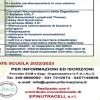 Share on Facebook
Share on Facebook
Proton pump inhibitor-induced tumour cell death by inhibition of a detoxification mechanism.
Abstract
This review presents a possible new approach against cancer, as represented by inhibition of proton pumps, a mechanism used by tumour cells to avoid intracellular accumulation of toxic substances. Proton pump inhibitors (PPIs) belong to a family of pro-drugs that are currently used in the treatment of peptic diseases needing acidity to be activated. PPIs target the acidic tumour mass, where they are metabolized, thus blocking proton traffic. Proton pump inhibition triggers a rapid cell death as a result of intracellular acidification, caspase activation and early accumulation of reactive oxygen species into tumour cells. As a whole, the devastating effect of PPIs on tumour cells suggest the triggering of a fatal cell toxification. Many human tumours, including melanoma, osteosarcoma, lymphomas and various adenocarcinomas are responsive to PPIs. This appears highly conceivable, in as much as almost all human tumours are acidic and express high levels of proton pumps. Paradoxically, metastatic tumours appear to be more responsive to PPIs being more acidic than the majority of primary tumours. However, two clinical trials test the effectiveness of PPIs in chemosensitizing melanoma and osteosarcoma patients. Indeed, tumour acidity represents a very potent mechanism of chemoresistance. A majority of cytotoxic agents, being weak bases, are quickly protonated outside and do not enter the cells, thus preventing drugs to reach specific cellular targets. Clinical data will provide the proof of concept on the use of PPIs as a new class of antitumour agent with a very low level of systemic toxicity as compared with standard chemotherapeutic agents.



